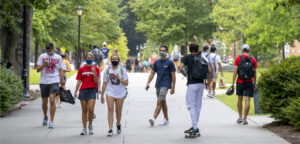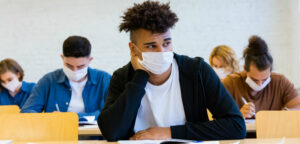
Figuring It Out Once Again
We’re in another academic year that’s got us navigating uncharted waters. Most of us are back on campus and in the classroom. What’s happening at our institutions varies widely: mandates for testing, masks, vaccines—all three, some, or none. To what extent the policies are being











